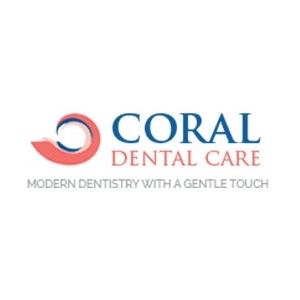Why It’s Important to Take Care of Oral Health After Pregnancy
.jpg)
Pregnancy brings about a host of changes in a woman’s body, and one area that can often be overlooked is oral health. After childbirth, maintaining good dental hygiene and taking care of oral health is essential for overall well-being. In addition to being crucial for your smile, oral health has surprising connections to other aspects of your physical health — even affecting areas like hair health. Here, we’ll explore why oral health after pregnancy is so important, how it can impact other health areas, and ways to keep your mouth in optimal shape.
Hormonal Changes and Oral Health
During pregnancy, the surge in hormones, especially estrogen and progesterone, increases blood flow to the gums, which can make gums more sensitive, swollen, and prone to bleeding. This condition, known as “pregnancy gingivitis,” can persist even after pregnancy, especially if oral care is not prioritized. If left untreated, gingivitis can progress to more severe gum disease, which affects not only your mouth but also your general health.
The Link Between Oral Health and Hair Loss
Post-pregnancy, many women experience noticeable changes in their hair, including hair loss. While this is often due to hormonal fluctuations, studies show a potential link between poor oral health and hair thinning. When bacteria from gum disease enter the bloodstream, they can trigger inflammation in other parts of the body, which may even impact hair follicles and contribute to hair loss.
If you’re experiencing hair loss after pregnancy, maintaining good oral hygiene might support healthier hair growth by minimizing inflammation and supporting a healthier immune response. While it’s not a cure, taking care of your oral health can be a valuable part of an overall wellness plan.
Risks of Post-Pregnancy Dental Neglect
- Gum Disease: Without regular dental care, pregnancy gingivitis can worsen, leading to periodontitis, a more severe form of gum disease that damages the bones supporting your teeth. This is not only uncomfortable but can also lead to tooth loss if untreated.
- Weakened Tooth Enamel: Some women may experience enamel erosion due to morning sickness and vomiting during pregnancy. If this isn’t addressed, it can lead to cavities and sensitive teeth.
- Increased Risk of Infections: A compromised immune system after pregnancy can make the body more vulnerable to infections, including oral infections. Untreated infections in the mouth can spread, impacting other organs and increasing inflammation in the body.
Tips for Taking Care of Your Oral Health Post-Pregnancy
- Visit the Dentist: Schedule a post-pregnancy dental check-up as soon as possible. A professional cleaning can remove plaque and tartar build-up, and your dentist can check for signs of gum disease or tooth decay.
- Stay Consistent with Brushing and Flossing: Brushing twice a day and flossing daily can go a long way in maintaining oral health. Choose a fluoride toothpaste to strengthen enamel and reduce sensitivity.
- Eat a Balanced Diet: Nutrients such as calcium, vitamin D, and phosphorus support both dental and hair health. A diet rich in fruits, vegetables, and dairy products will help keep your teeth strong and support hair regrowth if you’re experiencing hair loss after pregnancy.
- Limit Sugary Foods and Drinks: Sugar feeds harmful bacteria in the mouth, increasing the risk of tooth decay. Try to limit sugary snacks and opt for water or unsweetened tea instead of sugary beverages.
- Hydrate for Saliva Production: Staying well-hydrated helps maintain saliva production, which is essential for neutralizing acids in the mouth and keeping it free from bacteria.
- Consider a Multivitamin: If your healthcare provider recommends it, a postnatal multivitamin can help supply the nutrients needed for overall recovery, supporting oral health as well as other areas affected by childbirth, like hair health.
Oral Health’s Impact on Overall Health
Taking care of your mouth after pregnancy is not only about maintaining a healthy smile — it’s also about supporting your overall wellness. Gum disease has been linked to heart disease, diabetes, and respiratory conditions, so keeping your mouth healthy can help protect you from other health complications.
Final Thoughts
Post-pregnancy is a time of major adjustment, and it’s natural to focus on caring for your baby. However, remember that taking care of yourself is essential too. Maintaining good oral health is a small yet impactful step in caring for your overall well-being and may even help if you’re experiencing hair loss. Prioritizing your dental health now can provide lasting benefits for your body and ensure that you’re feeling your best during this precious new chapter of life.
Incorporating these small habits into your daily routine can make a significant difference in your health. A little extra care for your teeth and gums goes a long way — for your smile, your hair, and your wellness.
